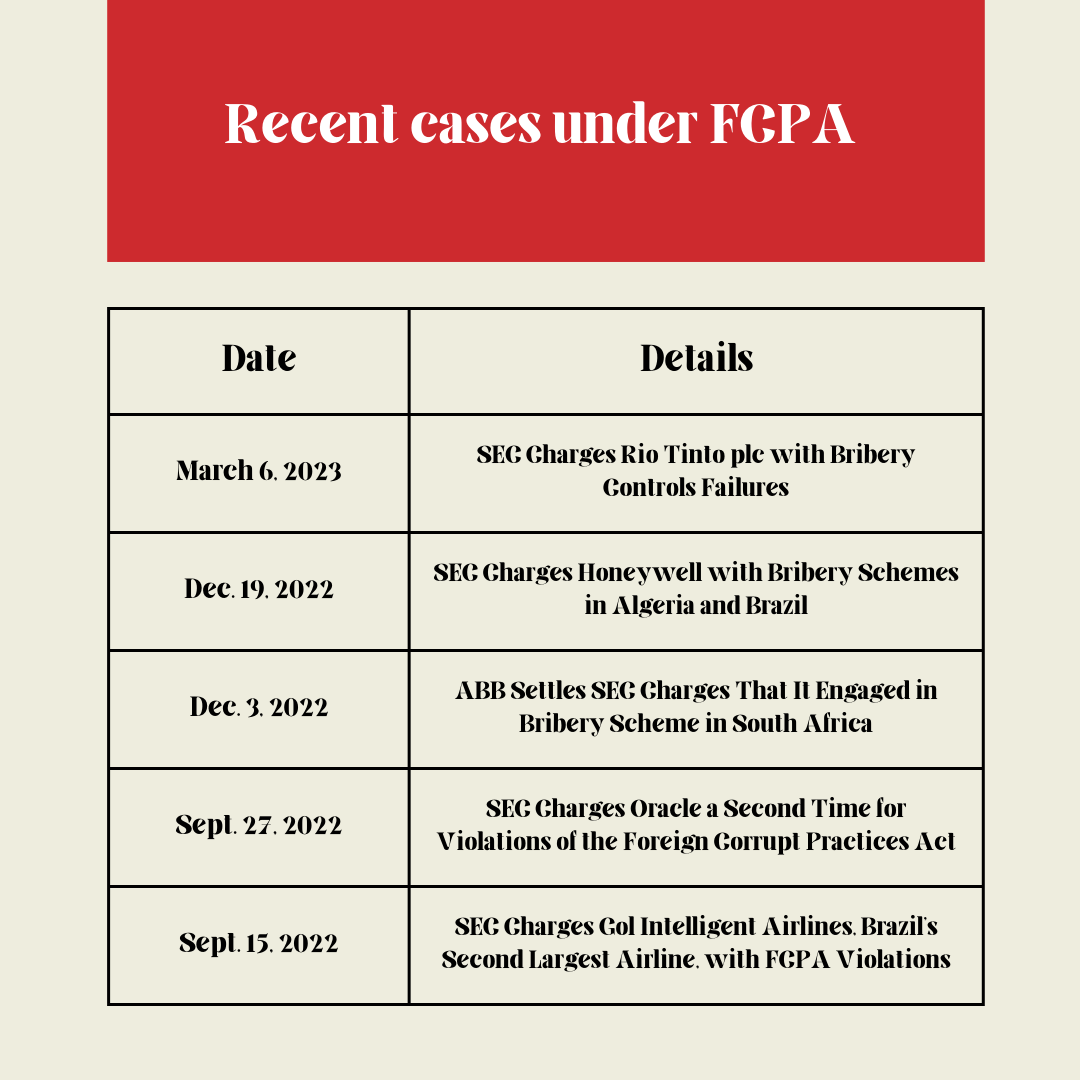The FCPA stands for Foreign Corrupt Practices Act of 1977, was enacted by Congress for the purpose of making it unlawful for certain classes of persons and entities to make payments to foreign government officials to assist in obtaining or retaining business.
Amendments to the FCPA
The FCPA was amended in 1998, with which the anti-bribery provisions of the FCPA also apply to foreign firms and persons who cause, directly or through agents, an act in furtherance of such a corrupt payment to take place within the territory of the United States.
Regulator
The Security Exchange Commission and the Department of Justice are jointly responsible for enforcing the FCPA. The SEC’s Enforcement Division has created a specialized unit to further enhance its enforcement of the FCPA.
Sanctions
The sanctions for FCPA violations can be significant. The SEC may bring civil enforcement actions against issuers and their officers, directors, employees, stockholders, and agents for violations of the anti-bribery or accounting provisions of the FCPA. Companies and individuals that have committed violations of the FCPA may have to disgorge their ill-gotten gains plus pay prejudgment interest and substantial civil penalties.
Recent cases under FCPA
Adani’s FCPA Investigation
The United States Department of Justice and the United States Securities and Exchange Commission have issued a criminal indictment and brought a civil complaint, respectively, in the United States District Court for the Eastern District of New York, Gautam Adani and Sagar Adani.
“The Adani Group has always upheld and is steadfastly committed to maintaining the highest standards of governance, transparency, and regulatory compliance across all jurisdictions of its operations,” Adani Group said in an exchange filing.



